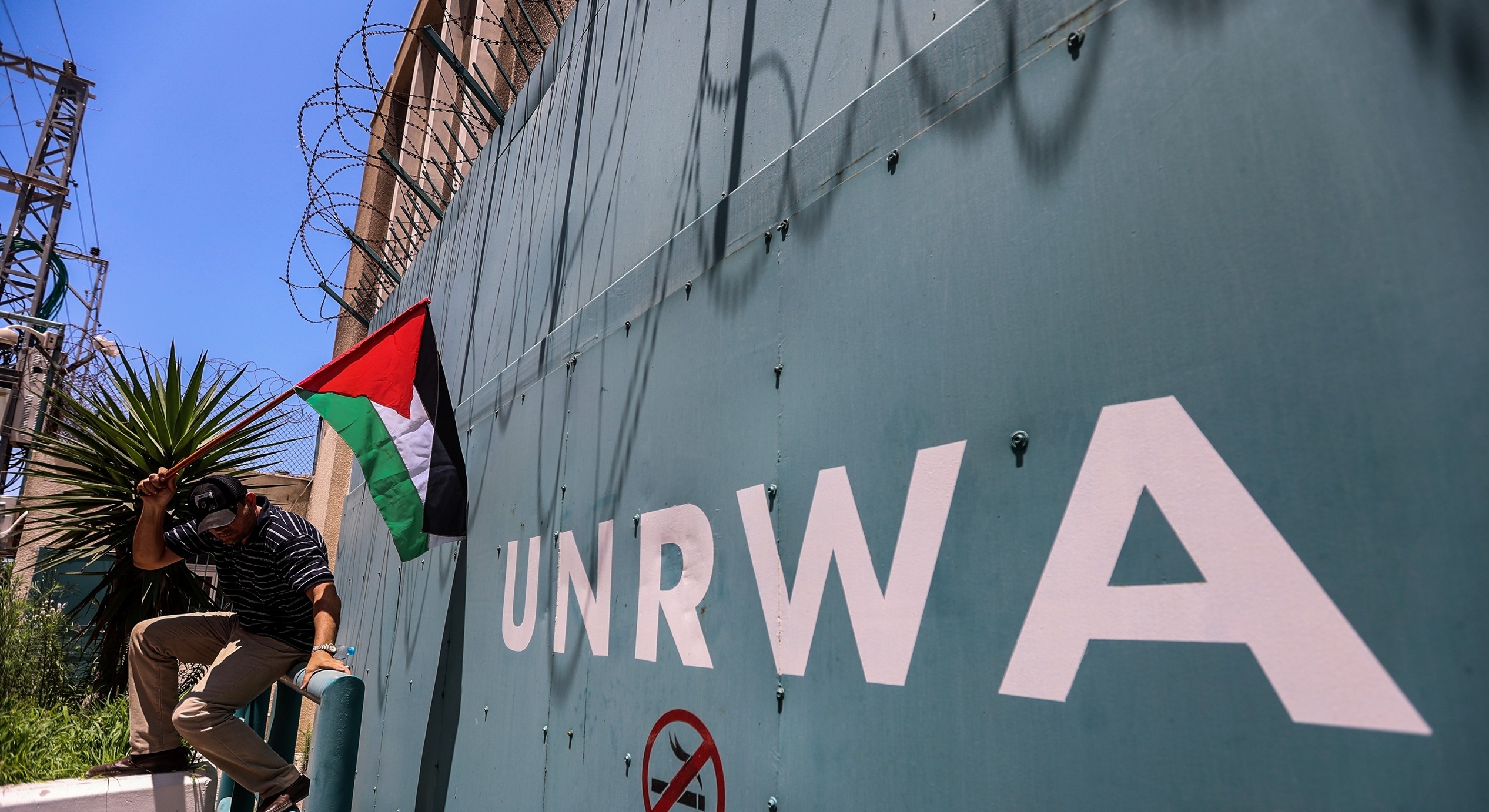

Palestinian
Refugees and UNRWA after Al-Aqsa Flood - Jaber Suleiman
Introduction
The Palestinian
refugee issue is the longest in modern history since the emergence of the
"international refugee regime" following World War II. However, it differs from other refugee situations witnessed
globally since that time. It arose from uprooting people from their land (in a
case of settler colonialism). Therefore, Palestinian refugees were accorded a
special status in the international refugee regime, as they are not subject to
the protection of the UNHCR like the rest of the world's refugees. Instead,
they fall under the mandate of UNRWA for relief protection, which differs from
the legal protection provided by the Commission. In any case, the Palestinians
consider protection a secondary issue compared to their right to return and
self-determination.
The refugee
issue and their right to return have been the driving force of the contemporary
Palestinian national struggle throughout the decades following the Nakba. Since
the 1950s, up until the Al-Aqsa Intifada, the Palestinian refugee issue
continued to be subject to attempts at liquidation, with the subsequent
introduction of displacement and settlement projects and the elimination of the
right of return. These attempts and projects have always focused on targeting
UNRWA, whose very existence stresses international responsibility for creating
the Palestinian refugee problem and the need to resolve it under international
law and relevant UN resolutions, most notably Resolution 194/1948 on the right
of return and Resolution 3236/1974, which closely links the right of return to
the Palestinian people's right of self-determination.
The Impact of War
on Gaza Before and After the Flood
Over the past
two decades, UNRWA was subjected to a fierce and coordinated Israeli/American
campaign questioning the justification for its political and ethical existence.
The campaign accused the organization of working to perpetuate the refugee
problem instead of resolving it and
called for its integration into the UNHCR. This campaign had escalated under
the previous Trump administration, led
by Trump's son-in-law and advisor, Jared Kushner, and Trump's Middle East peace
envoy, Jason Greenblatt.
On August 31,
2018, the Trump administration cut off all financial support to UNRWA. Before
it took that step, on August 3, 2018, Foreign Policy reported about the two
advisors' visit to Jordan in June 2018. During that visit, they exerted tremendous pressure on the Jordanian government to push it to strip more than two million
refugees registered with UNRWA in Jordan of their legal status as refugees.
According to the magazine, Kushner expressed his willingness to transfer the
value of US support to UNRWA (about $300 million) directly to Jordan and the
host countries, provided that the Palestinian refugees are settled in those
countries and carry out UNRWA's function.
The campaign
against UNRWA did not stop during the subsequent Biden administration. However,
it took a dangerous, dramatic turn after al-Aqsa FLood. Less than three months
after the war [on Gaza], The Times of Israel spoke about a report on [Israeli
TV] Channel 12 (on 29/12/2023), which revealed the details of a secret document
from the Israeli Foreign Ministry, leaked to the channel, which aims to exclude
UNRWA from Gaza in the post-war phase. The document recommends implementing a
gradual three-stage plan to achieve this goal. The first stage included
preparing a comprehensive report on Israel's claims that UNRWA is cooperating
with Hamas; the second stage entails reducing UNRWA’s operations in the
Palestinian Territories while searching for other organizations to provide
education and social services; and the third stage involves transferring all of
UNRWA’s functions to the body that will govern and manage Gaza after the war.
All subsequent
and illegal Israeli measures against UNRWA came to implement this secret plan,
which culminated in the Knesset’s approval on 28/10/2024 of two laws aimed at
stopping and banning UNRWA’s activities in areas under Israeli control.
According to the Jerusalem Post, the first bill would prevent UNRWA from
"operating any institutions, providing any services, or carrying out any
activities, directly or indirectly" in Israel. The second terminates the
treaty signed between Israel and UNRWA following the 1967 war. Thus, Israeli
agencies and representatives of Israel would be barred from contacting UNRWA or
its representatives three months after the final Knesset vote.
Prohibiting
contact and communication with UNRWA would get rid of all the privileges it was
granted, namely the protection of UNRWA facilities and property; freedom of
movement for UNRWA vehicles to and from Israel; protection of UNRWA employees
(local and foreign) and granting them the necessary documents to carry out
their work, and allowing them freedom of movement in the areas concerned.
Removing all these privileges will harm and complicate UNRWA’s ongoing
operations in the West Bank and Gaza. According to Haaretz [Israeli newspaper] (on 28/10/2024), this second law, which
included the cancellation of tax breaks, would make it difficult for Israeli
banks to deal with UNRWA, which could lead to its administrative collapse in
the West Bank and Gaza.
This step by
the Knesset was indeed taken in the context of the war on Gaza to aggravate the
humanitarian situation further, serve the goals of the war, and lead to the
total exclusion of UNRWA from the so-called day-after arrangements. However, it
must be seen from a broader perspective: the systematic attack on UNRWA from
before the flood until today. The attack's main titles have become known
(drying up its financial resources, finding alternatives for providing
services, liquidating the agency, if possible, by transferring its powers to
UNHCR). Thus, UNRWA would be led to redefine the concept of "Palestinian
refugee" so that it is limited to those who remained alive from the first
generation of the Nakba, consequently liquidating the right of return for
subsequent generations.
With the entry
into force of Israeli laws at the end of last January and Israel's notification
of the UN, the Israeli-American war on UNRWA continued. Among the executive
decisions signed by Trump during Benjamin Netanyahu's visit to the White House
[in early February] was a decision to withdraw the US from the UN Human Rights
Council and UNRWA (4/2/2025) by identifying with the Knesset laws and stopping
American funding for UNRWA, which amounts to a third of its regular budget. In
the broader context of the war on UNRWA, related to the liquidation of the
Palestinian refugee issue and the right of return, Trump, in the presence of
Netanyahu, signed his shocking decision to seize Gaza and displace its
residents to Egypt, Jordan, and other countries.
This Trump
project was met with a unified Palestinian national position, rejecting
displacement and settlement anywhere else outside Palestine. The Egyptian,
Jordanian, and other Arab position categorically rejected the idea in
principle. It was also met with widespread international condemnation from most
of US, European, and non-European allies. The same position was taken by all UN
bodies. The global human rights community considered "the cleansing of
Gaza" a blatant violation of the principles of international law and a
crime of ethnic cleansing, amounting to a crime against humanity. Even within
the Zionist entity, some political and security circles doubted the possibility
of its applicability.
Trump's idea
seems to belong to the era of colonial expansion overseas in the nineteenth
century, whose time has passed. It is a continuation of the Balfour Declaration
that colonial Britain made to the Zionist movement last century. The New York
Times rightly described it as "the most impudent idea of an American
leader in many years."
In the final
analysis, we must rely on the Palestinian people and the power of “Palestinian nationalism” ,
as in the 1950 when they brought down the projects of Palestinian displacement
and resettlement (in the Sinai Desert, the Jordan Valley, and Wadi al-Ghab/Syria).
The Palestinians will never repeat the 1948 Nakba. The flood of return of
Gazans to the destroyed north immediately after the ceasefire is the most
striking proof of the deep-rootedness of the idea of return in the popular
conscience and collective memory of Palestinian people.
Recent publications

